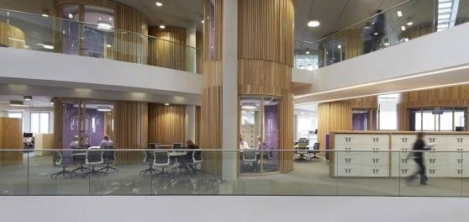December 17, 2014
Only a third of staff trust their senior management, finds CIPD
 There is little evidence of improvement in the quality of management in the UK over the last decade – and it is one of the reasons behind the UK’s long-standing productivity weakness compared to the likes of the US and Germany. According to the CIPD report ‘Are UK organisations getting better at managing their people?’ while 65 percent of employees are generally satisfied with their line manager and largely trust them and value their honesty, only 33 percent say they trust their senior management. It found that management processes are not always applied consistently or fairly and this is one reason why there is a lack of trust in senior leadership. These are deep-rooted problems and the solutions are largely down to organisations, says the CIPD, which is urging the Government to consider ways in which it can raise awareness of the challenges and potential approaches to tackling them, not least in its capacity as an employer.
There is little evidence of improvement in the quality of management in the UK over the last decade – and it is one of the reasons behind the UK’s long-standing productivity weakness compared to the likes of the US and Germany. According to the CIPD report ‘Are UK organisations getting better at managing their people?’ while 65 percent of employees are generally satisfied with their line manager and largely trust them and value their honesty, only 33 percent say they trust their senior management. It found that management processes are not always applied consistently or fairly and this is one reason why there is a lack of trust in senior leadership. These are deep-rooted problems and the solutions are largely down to organisations, says the CIPD, which is urging the Government to consider ways in which it can raise awareness of the challenges and potential approaches to tackling them, not least in its capacity as an employer.























December 17, 2014
Flexible working is best built on the foundations of a great office
by Charles Marks • Comment, Flexible working, Workplace design
(more…)